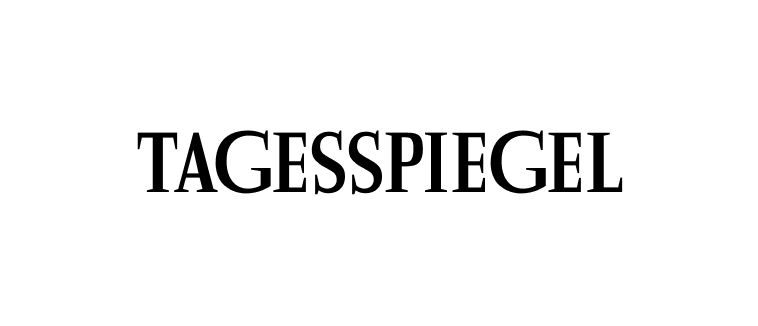Hi from Berlin,
The world’s conflicts are escalating at a speed which is hard to keep up with. Having been living in wartime for one-and-a-half years already, we now see an outburst of antisemitism in many countries and the outbreak of another war where thousands of civilians are suffering.
For the inhabitants of Gaza, the war also means the shortage of energy, posing a threat, most tragically, to the supply of vital care in hospitals.
Energy was a key topic for us one year ago. Back then, many in Europe were wondering how we would cope with the upcoming winter, given our dependency on gas from Russia. It turned out to be less bad than many feared, maybe because of a mild winter, and maybe also because people were conscientious about saving energy.
Today, hardly anyone is talking about saving energy anymore, at least not in Germany, and especially not for reasons of security. We are preoccupied with two ongoing conflicts. And in Germany at the moment, many are suspicious about the issue of saving energy, which is sometimes seen as another restriction on poor homeowners by the “evil” Greens and their love for prohibitions.
Time for us to ask: Has the energy situation changed? Can we be relaxed, energywise, this winter?
Teresa Roelcke, this week’s Editor-in-Chief
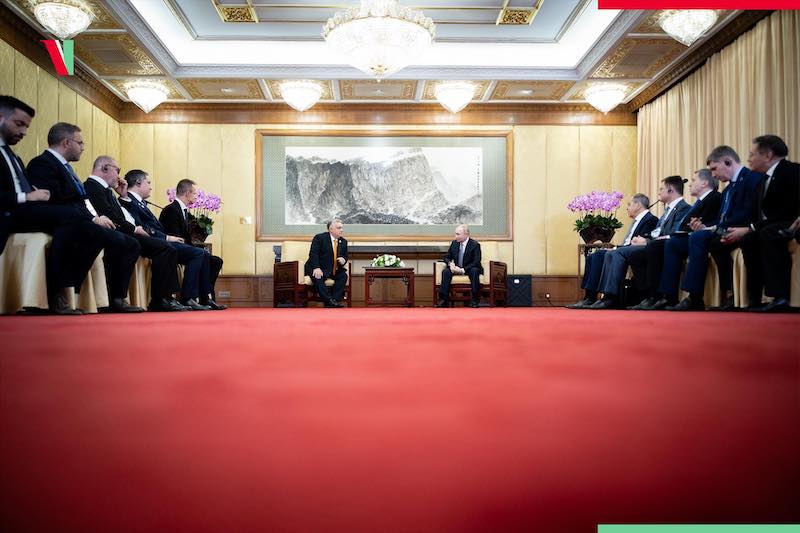
While EU countries are publishing victory reports on their divorce from dependence on Russian energy, Hungary is using words that are pleasing to Vladimir Putin’s ears. Most recently, these came from the country’s chief diplomat, Foreign Minister Péter Szijjártó, who is best known for his friendly visits to Asian dictatorships.
Speaking at the opening of the Eurasian Security Conference in Minsk, Szijjártó said: “We see energy security as a matter of physical reality, not a political issue,” and added that Hungary would maintain pragmatic cooperation with Russia.
His words are easy to translate: independence from Russian energy is still out of the question. But The European Commission’s State of the Energy Union Report underlines that such a high level of dependence poses a threat to the security of supply to Hungary.
Whether Russian gas is really the only solution, as the government regularly claims, is questionable, given that Hungary has several alternatives, thanks to pipeline connections to neighbouring countries.
Indeed, there are already plans to further diversify Hungary’s gas sources. Connecting to the Baltic Pipeline would open up the North Sea gas fields directly to Budapest. Last year, Romania also relaunched the development of the Neptun gas field in the Black Sea, of which Hungary would be a major customer. Hungary has also started buying gas from Azerbaijan, in line with the European Union’s programme.
However, the Hungarian government has no intention of quitting a 15-year gas supply contract Orbán signed with Gazprom in 2021.
The government explained the need for the contract as this ensured predictable, long-term supply and a discounted price. A few weeks before the invasion of Ukraine, Putin also claimed that the contract would allow Hungary to receive gas at a fifth of the market price. But that proved to be a lie, as energy prices remained volatile.
The population – on the other hand – is not directly aware of this scam.
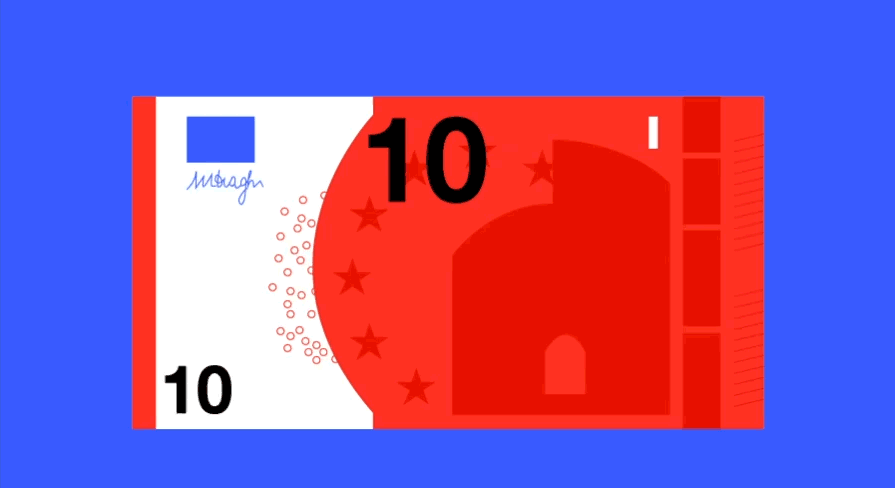
When Bulgaria introduced a 10 euros per MW/hour “punitive” tax on Russian natural gas transit in October, neighbouring Serbia and fellow EU member Hungary cried foul.
The two Moscow-friendly governments called this a “hostile” move which jeopardises their energy security ahead of the winter heating season.
The tax is equal to roughly 20 percent of Europe’s benchmark gas prices, and is expected to bring some 1.1 billion euros to Bulgaria this season. The move could also reduce profits on Russian-based companies, whose tax revenues fuel Moscow’s war machine in Ukraine.
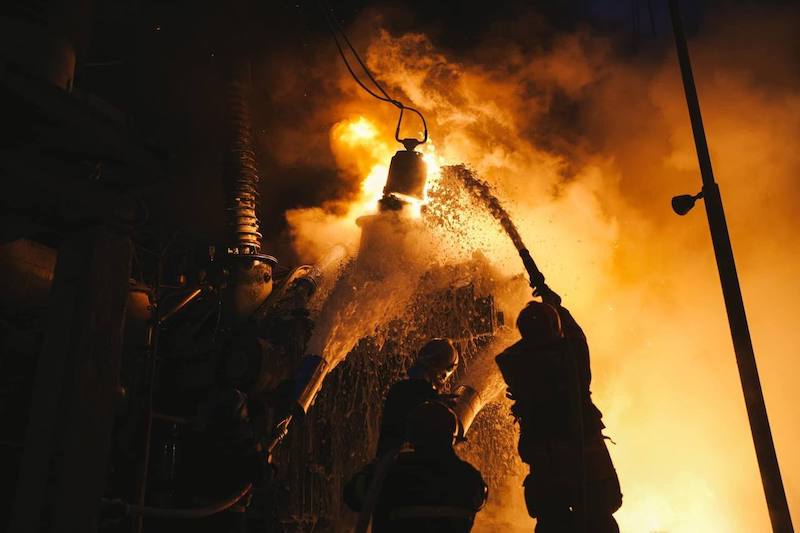
If I were to describe the mood in Ukraine this October in one word, it would be “anticipation”. We know the Russian missiles will come. We are waiting for the enemy to try and deprive us of electricity, and, if it’s lucky, heat. We are aware our energy infrastructure is more fragile than last year and Russia is probably so short of missiles that it cannot afford to make mistakes.
Last year, the first massive missile attack that targeted Ukrainian energy infrastructure happened on 10 October. That evening, authorities in Ukraine asked the population to minimise their electricity consumption. A week later, after another attack, blackouts started, streets went dark, and one could find cafés and shops by the sound of the rumbling diesel generators powering them.
Now, we are trying to be better prepared. Several of my friends tweaked their internet access to ensure the connection could last longer during outages. NGOs are supplying different communities and companies with charging stations which can power several devices for a day. I have also received one. Some people are insulating their houses and flats, so less heat can escape.
But for power generation and transmission systems, it is hard to prepare. Power lines were restored after suffering damage, but repairing large generating or distributing facilities which were badly affected is costly and complicated. Sometimes it’s even better to build a new substation or thermal power plant, instead of repairing the old one. But this takes years ― which we obviously haven’t had since last winter.
When I go to bed, I often think: maybe, this will be the night of the Russian attack? It will probably be massive, in order to overwhelm our anti-air system. Maybe, it will involve swarms of drones too. So far, the invader isn’t ready yet.
When it will come, it won’t feel catastrophic. Our backyards are still dotted with generators, big and small. If we are unlucky this winter, the streets will just fill again with their humming.
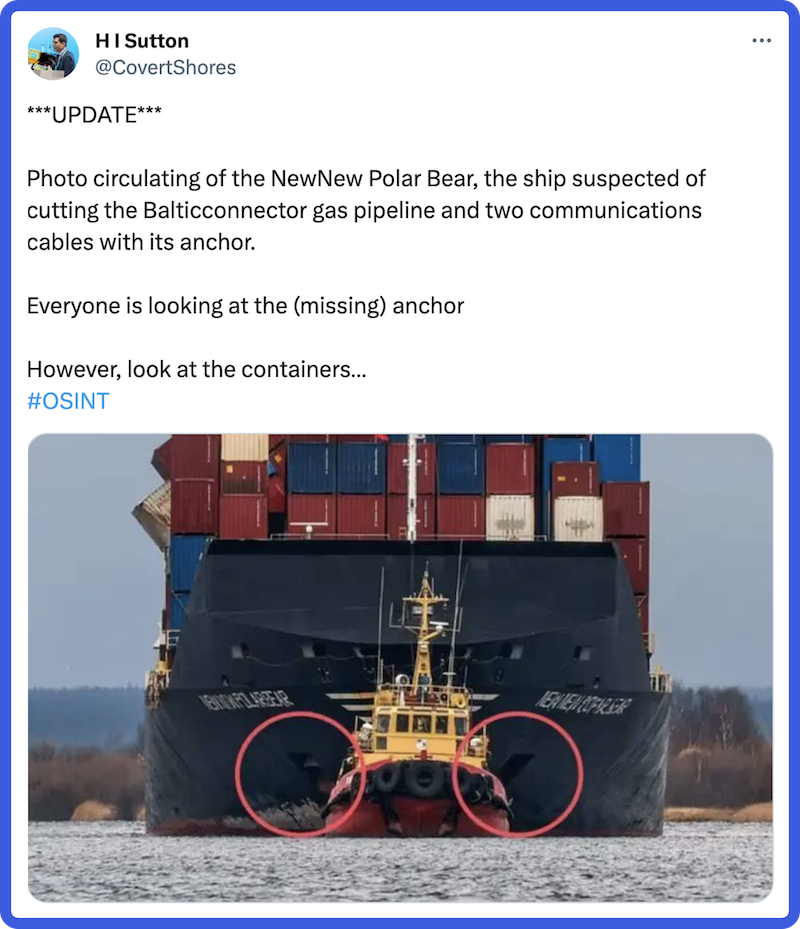
In the early hours of Sunday 8 October, pressure at the Balticconnector gas pipeline between Estonia and Finland suddenly started to drop.
There was a heavy storm that weekend, but when the authorities were finally able to investigate the seabed, they discovered traces of something being dragged along the bottom, a torn pipeline and a broken anchor.
A data cable dozens of miles to the east was torn in half. Another cable that connects Estonia and Sweden was also malfunctioning. Similar traces to the pipeline site were found in both these locations.
The prime suspect of these incidents is the Chinese cargo vessel Newnew Polar Bear, which passed each location around the time the damage took place. A photo taken a few days later shows Newnew Polar Bear missing an anchor and its containers tilting heavily to one side.
The ship’s crew has refused to respond to investigators’ inquiries. It is not clear if an actor caused the damages knowingly or accidentally, but the incident indicates how easy it is to sabotage critical undersea infrastructure.
Although the Balticconnector will be out of service until at least April next year, the two countries’ energy supplies are safe. But NATO has stepped up surveillance of the Baltic Sea area to prevent further incidents.

France’s ageing nuclear plants shut down many reactors for maintenance last winter, forcing the country to import electricity for the first time since 1980. This year less turbulence is expected for the country’s power sector and France is again becoming a key electricity exporter, according to energy expert Nicolas Goldberg, energy expert at Colombus consulting and for the Terra Nova think tank.
Are France’s nuclear power stations better prepared for winter than last year?
The situation is undeniably much better than last year. The availability of nuclear power supply in October was comparable to that of 2019 [i.e. at its highest level for four years]. Not all the reactor maintenance problems have been resolved, but progress has been made. Concerns for this winter are very moderate, especially as there are still traces of last year’s energy savings plan.
Will this mean lower prices for customers?
Market prices are set by anticipating the next day’s price and by confidence in production. In September, French market prices were below German prices, which is almost unheard of. This shows that confidence has returned. It’s also good news for Europe. France is once again exporting electricity, and we’re even close to maximum export capacity. The French nuclear system has once again become an asset for the European market.
Could the situation in the Middle East, on the other hand, push up European energy prices?
Gas markets are very nervous, and following the Hamas attacks, gas prices jumped slightly. But in the medium term, there shouldn’t be any major consequences. Israeli gas is hardly ever exported to Europe.
Thanks for reading the 50th edition of European Focus,
Hopefully, we could provide you with some new perspectives.
As always we are interested in your feedback. You can write us an email to: info@europeanfocus.eu.
See you next Wednesday!
Teresa Roelcke


